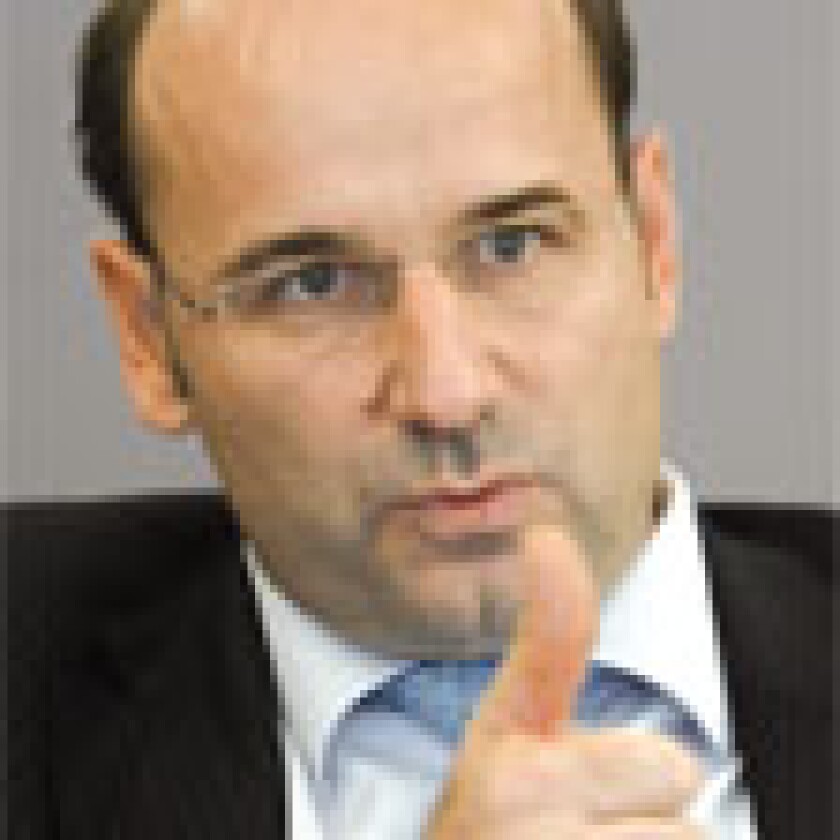Hungary’s largest financial institution has launched a stinging attack on the EBRD, accusing the lender of forcing it to accept a loan at the height of the financial crisis by leaking details of the deal to the media.
Laszlo Bencsik, CFO of OTP Bank, told Emerging Markets that the EBRD, which is a minority shareholder in the Hungarian bank, had demanded onerous terms for its loan.
“We felt uneasy about the fact that EBRD communicated to the Press before we even started to discuss the terms and conditions of the subordinated loan agreement,” he said.
“When they came up with their suggested terms we could not back off from the deal since the investor community had already taken it as granted and a no deal would have been regarded as a negative sign.”
In exchange for the credit line, the EBRD demanded OTP sell it E20m in share capital, which had later rose by an estimated HUF4 billion - 5billion. “If EBRD did not insist on this, we would not have sold these treasury shares,” Bencsik said:
Earlier this month Sandor Csanyi, the bank’s chairman, said the EBRD had hurt its profitability by forcing it to take up an expensive subordinated loan July last year at 7% over the euro inter-bank rate.
OTP has to-date not used the loan, but the EBRD has received “a steep upfront fee out of it,” a former senior executive at OTP, who was familiar with the matter, told Emerging Markets.
The EBRD said that it “rejected the claims” made by OTP’s management and that it stood ready to work the bank. “As the global financial and economic crisis hit central and eastern Europe in 2008-2009, EBRD repeatedly stated its readiness to support systemically important banks in the region, including OTP, to weather the impact of the upheaval,” a spokesperson said.
In a further sign of the deteriorating relationship between OTP and the EBRD, which owns 2% of the bank, Bencsik criticised the multilateral bank’s decision to oppose a proposed voting rights cap.
On April 30 shareholders rejected a resolution to limit the voting right of any group of shareholders to a maximum of 10%, regardless of their stake. “It seems they were thinking with the mindset of a short term financial investor - like a hedge fund,” said Bencsik.
The EBRD spokesperson said: “EBRD has been seeking to uphold the principles of good corporate governance and has been particularly sensitive to limitation of shareholder rights.”
On the wider economy, Bencsik said poor credit growth in Hungary was due to reduced loan demand from credit-worthy borrowers rather than liquidity costs.
